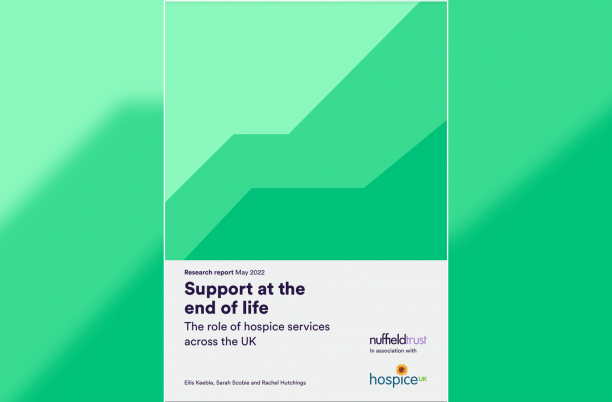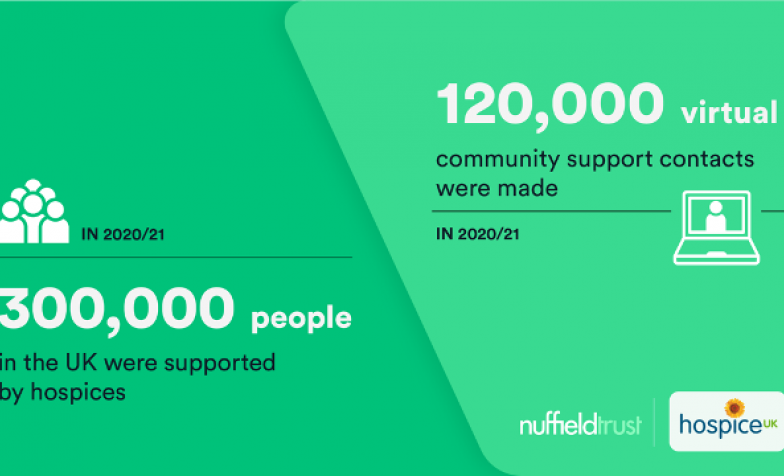
Support at the end of life: The role of hospice services across the UK

The report illustrates the breadth of services offered by hospices to their communities, which have been key to supporting quality end of life care throughout the pandemic. Hospices provided care for more than 300,000 dying people and their families in 2020-21.
Download this report.
About this publication
This research is the first detailed national picture of hospice care since 2017 and most comprehensive analysis since 2011. The research highlights that the services offered by hospices to their communities are much more than many people expect, and go well beyond the hospice walls.
Having adapted rapidly during the outbreak of the COVID-19 pandemic, hospices were able to continue supporting communities by providing more hospice at home care, support for family and friends, virtual services and bereavement support. By being agile and quick to adapt, hospices were able to give people in their communities the excellent support and care they needed.
However, with over 100,000 extra deaths at home in the first two years of the pandemic, the report also raises questions for the provision of end of life care into the future.
The Nuffield Trust’s analysis of a survey of hospices conducted by Hospice UK shows there has been a shift during the pandemic in where and how hospice services are provided. A clear majority of hospice care is delivered at home, rising to almost a million ‘hospice at home’ contacts in 2020/21.
Having switched to providing services remotely in response to concern from patients about attending appointments, and to reduce risk of COVID-19 infections, along with hospice at home care, hospices also moved to virtual support.
Throughout the pandemic, hospices conducted over 120,000 community support contacts between people and services, along with virtual welfare, bereavement, and therapy services.
Authors
Eilís Keeble, Sarah Scobie and Rachel Hutchings
Published by The Nuffield Trust in association with Hospice UK. May 2022.
Acknowledgements
The Nuffield Trust and Hospice UK worked collaboratively on the survey used in this research, and Hospice UK led on the data collection from hospices. We would particularly like to thank Dominic Carter for leading the Hospice UK aspects of the work, and Craig Duncan for his support.
We are extremely grateful to all the hospices who responded to the survey, and to those who provided comments on draft versions of the survey questions. We would also like to thank participants from hospices and national organisations who took part in workshops to discuss the draft survey findings and implications.
We thank our reviewers from Hospice UK, Ed Manning from NHS England and NHS Improvement, and Natasha Curry, Theo Georghiou and Rowan Dennison from the Nuffield Trust.




